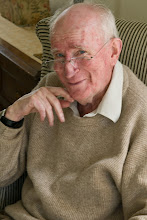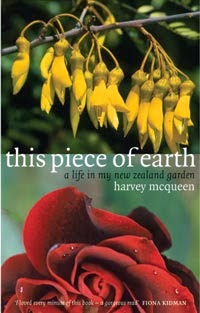For some time my morning reading of the Dom-Post has been punctuated by yells of anguish and shrieks of disbelief. What terrible calamity or new political idiocy is provoking these noisy outbursts? None. I'm reacting to the extraordinary abuse of the English language I see in its pages every day (and hear on TV).
Now I learn, via the invaluable Beattie's Book Blog, that this plague has spread throughout the US press. In the Washington Post, Gene Weingarten mourns the death of English. To his all too familiar examples, found in papers large and small all over the country - alot, mispronounciation, eeking out a living, prostrate cancer, between you and I - I can add many, many more: less people/games/cars, Porirua being "more dear" than Wellington in terms of house prices, endless mismatchings of plural subjects with singular verbs and vice versa, the use of "of" to replace a wide range of prepositions (confused of, bored of, concerned of)... Tragic. I know that's the word many people would use to describe the fact that I even notice such things, let alone care about them. But that is their problem.
Thursday, September 23, 2010
Sunday, September 19, 2010
Thanks for the congratulations, guys. Guys?
It was women's suffrage day today, marking the 117th anniversary of New Zealand women winning the vote and this country becoming the first nation state in the world where women could vote on an equal footing with men. But somehow the media failed to notice... You'd think someone might have gone to see how the Christchurch memorial to the suffragists had fared in the earthquake - maybe that did happen in Christchurch? Or maybe not. There was a TV news item about women in Afghanistan voting, but no segue there either. Anywhere else you would think this achievement merited some kind of official recognition, akin to Labour Day. But no. Oh, wait - I've just found a government press release, put out on 14 September...
When I searched the Te Ara online encyclopaedia site for "women's suffrage", and then tried every related term I could think of, the main entry failed to come up (though I'm sure it's there, somewhere). For some insights into what happened at the 100th anniversary, in 1993, have a look here.
When I searched the Te Ara online encyclopaedia site for "women's suffrage", and then tried every related term I could think of, the main entry failed to come up (though I'm sure it's there, somewhere). For some insights into what happened at the 100th anniversary, in 1993, have a look here.
Monday, September 13, 2010
Designer and other whores
In the Dominion Post's new "Your Weekend" tabloid lift-out on Satrday (11 September) there was an article about Fashion Week (which "turns 10 this month"). It quoted Petra Bagust saying (twice - once in the text and once in the caption) that she was a "self-confessed "designer whore'".
Call me hopelessly old-fashioned and out of touch, but I was taken aback by this phrase. I hadn't seen it before. Apparently (so the Urban Designer site tells me) it means "a person who only cares for/wears designer labels".
Sure enough, a quick search revealed that Ms Bagust had said much the same thing last year: "I'm a friend of New Zealand designers or a designer whore, depending on how you look at it, but I like to think of myself a friend."
Why did I find this expression so startling? I'm not sure. To me a whore is someone who sells sex for money. It's also a term of abuse used by men - and sometimes other women - to put down women they disapprove of.
I can see that it might be a good idea to reclaim this term (much as Mary Daly wanted us to reclaim words such as "crone") and thereby take away its power to condemn some women. Is that what's going on here? Somehow it doesn't feel like it. Instead it feels as if this is yet another example of attractive young women doing their utmost to prove they're so up with the play that they don't care what they call themselves (or wear on their T-shirts), as long as they give the impression that they're at the furthest possible remove from being a prude. And that's not exactly progress - is it? What do you think?
Call me hopelessly old-fashioned and out of touch, but I was taken aback by this phrase. I hadn't seen it before. Apparently (so the Urban Designer site tells me) it means "a person who only cares for/wears designer labels".
Sure enough, a quick search revealed that Ms Bagust had said much the same thing last year: "I'm a friend of New Zealand designers or a designer whore, depending on how you look at it, but I like to think of myself a friend."
Why did I find this expression so startling? I'm not sure. To me a whore is someone who sells sex for money. It's also a term of abuse used by men - and sometimes other women - to put down women they disapprove of.
I can see that it might be a good idea to reclaim this term (much as Mary Daly wanted us to reclaim words such as "crone") and thereby take away its power to condemn some women. Is that what's going on here? Somehow it doesn't feel like it. Instead it feels as if this is yet another example of attractive young women doing their utmost to prove they're so up with the play that they don't care what they call themselves (or wear on their T-shirts), as long as they give the impression that they're at the furthest possible remove from being a prude. And that's not exactly progress - is it? What do you think?
Thursday, September 9, 2010
Aftershocks
Our niece Jenny is an engineering geologist (it gives me enormous pleasure to write that - in my day the number of women doing engineering was zero). She grew up in the South Island high country, then on a farm near Methven, and went to university in Christchurch. She's now working in London, having to watch news of the earthquake and its aftermath from afar. Today she did what she could by sending a graph of the aftershocks that a mate had put together for her. It shows them clearly tapering off. Harvey's blog today over on stoatspring is about the earthquake too.
Sunday, September 5, 2010
Changing tack
There is, as yet, absolutely no shortage of topics for a feminist to write about. But thanks to the success of The Hand Mirror, the joint feminist blog I contribute to, I've been thinking lately that I might change tack on Elsewoman. What I'm thinking is that every time I post on The Hand Mirror, I'll either cross-post or put up an alert on Elsewoman (because I know there are quite a lot of people who look at this but aren't familiar with THM). I'd also like to use Elsewoman to write about my own writing, because I'm feeling the lack of anywhere to do that, and about other people's writing, as well as anything else I want to think out loud about that isn't going to work for THM. So I'll try that, and see how we go - I can always change again, that's the beauty of blogs, nothing is set in stone.
Wednesday, September 1, 2010
The state of NZ women: telling the truth
The Ministry of Women's Affairs has just put out for consultation its draft report to the UN Committee on the Convention on the Elimination of Discrimination Against Women (CEDAW).
If you belong to an organisation which has an interest in the status of women in New Zealand, you should comment on this draft. If your organisation has not received a draft for comment, please contact:
Judy Edwards Edwards@mwa.govt.nz or Nicole Benkert Benkert@mwa.govt.nz.
Comments are due by 8 September.
It's extremely important that the government puts out an accurate report reflecting the true state of women in New Zealand and what has and has not been done over the last four years, in terms of what the Committee asked the government to do after the 2006 report. You can se what this was in the Committee's Concluding Comments, here.
If you belong to an organisation which has an interest in the status of women in New Zealand, you should comment on this draft. If your organisation has not received a draft for comment, please contact:
Judy Edwards Edwards@mwa.govt.nz or Nicole Benkert Benkert@mwa.govt.nz.
Comments are due by 8 September.
It's extremely important that the government puts out an accurate report reflecting the true state of women in New Zealand and what has and has not been done over the last four years, in terms of what the Committee asked the government to do after the 2006 report. You can se what this was in the Committee's Concluding Comments, here.
politics, books, food, domestic
CEDAW,
MWA,
women's movement
Subscribe to:
Posts (Atom)





